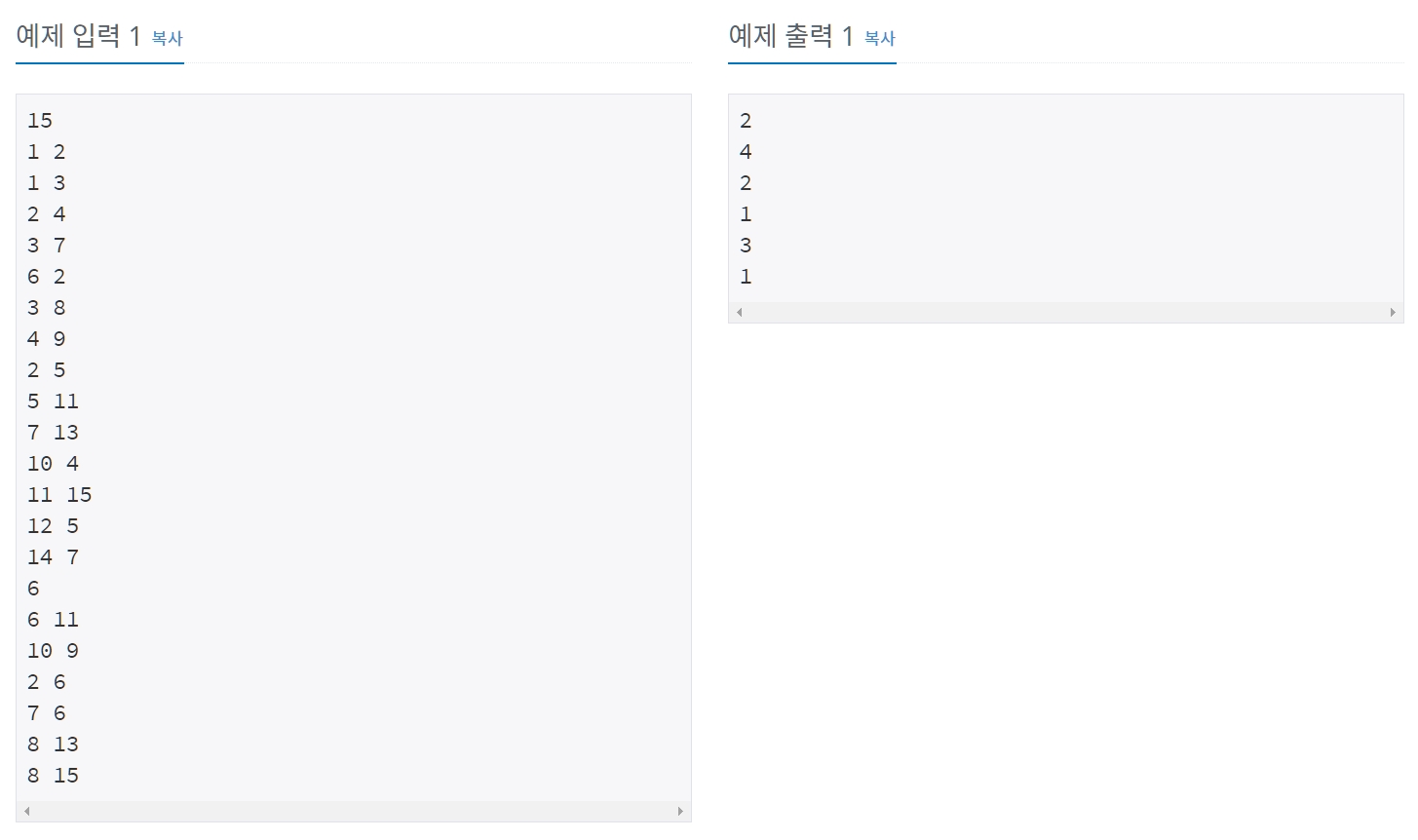Baekjoon 11437
LCA
QUESTION ❔


CODE ⌨️
#include <iostream>
#include <vector>
#include <queue>
#define MAX 16
using namespace std;
vector<int> node[50001];
int parent[50001][MAX];
int depth[50001];
vector<int> answer;
queue<int> Q;
int N, M, u, v;
int LCA(int u, int v)
{
if (depth[u] > depth[v]) swap(u, v);
int diff = depth[v] - depth[u];
int idx = 0;
while (diff > 0)
{
if (diff % 2 == 1)
{
v = parent[v][idx];
}
idx++;
diff /= 2;
}
if (u != v)
{
for (int i = MAX - 1; i >= 0; i--)
{
if (parent[u][i] != parent[v][i])
{
u = parent[u][i];
v = parent[v][i];
}
}
u = parent[u][0];
}
return u;
}
int main()
{
ios_base::sync_with_stdio(0);
cin.tie(0);
cout.tie(0);
cin >> N;
for (int i = 0; i < N - 1; i++)
{
cin >> u >> v;
node[u].push_back(v);
node[v].push_back(u);
}
for (int i = 1; i <= N; i++)
{
depth[i] = -1;
}
depth[1] = 1;
Q.push(1);
while (!Q.empty())
{
int temp = Q.front();
Q.pop();
for (int i = 0; i < node[temp].size(); i++)
{
if (depth[node[temp][i]] != -1) continue;
depth[node[temp][i]] = depth[temp] + 1;
parent[node[temp][i]][0] = temp;
Q.push(node[temp][i]);
}
}
for (int i = 0; i < MAX - 1; i++)
{
for (int j = 2; j <= N; j++)
{
int k = parent[j][i];
if (k != 0) parent[j][i + 1] = parent[k][i];
}
}
cin >> M;
for (int i = 0; i < M; i++)
{
cin >> u >> v;
int result = LCA(u, v);
answer.push_back(result);
}
for (int i = 0; i < answer.size(); i++)
{
cout << answer[i] << "\n";
}
return 0;
}
RESULT 💛

SIMPLE DISCUSSION ✏️
Tree 관련 문제였다. 이 문제를 통하여 LCA 알고리즘을 공부할 수 있었다.
SOURCE 💎
Baekjoon_Link 👈 Click here
*****
NOT A TALENT ❎ NOT GIVING UP ✅
CopyRight ⓒ 2022 DCherish All Rights Reserved.
CopyRight ⓒ 2022 DCherish All Rights Reserved.